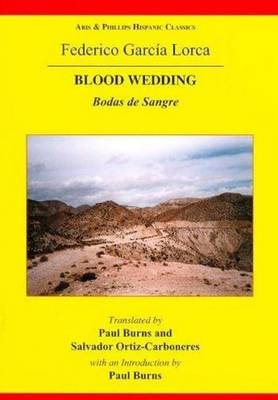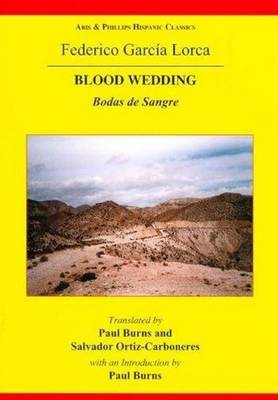
- Afhalen na 1 uur in een winkel met voorraad
- Gratis thuislevering in België vanaf € 30
- Ruim aanbod met 7 miljoen producten
- Afhalen na 1 uur in een winkel met voorraad
- Gratis thuislevering in België vanaf € 30
- Ruim aanbod met 7 miljoen producten
Zoeken
Omschrijving
Federico Garcia Lorca was born near Granada in 1898. Initially set on studying music in Paris, after his piano teacher died in 1916 he became involved in a literary and artistic group, including H G Wells and Rudyard Kipling. This move towards a more literary life eventually paid off. Blood Wedding (Bodas de Sangre) was written in 1932, and was first performed in Madrid in March 1933. It proved to be the popular and critical success he'd been waiting for. When the play was staged in Buenos Aires he even found himself confronted with the prospect of wealth - a prospect that soon became a reality. This prosperous, happy spell was short-lived though, as the political situation in Spain altered under Franco, putting an end to this time, and ultimately, his life. Lorca was executed on August 18th 1936. Blood Wedding is based around the story of a young woman who, unable to wed her lover is made to marry a more suitable man. On the day of her wedding, however, La Novia (The Bride) runs away with her lover (Leonardo), who is married with children. A series of events ensues... Leonardo is the only character in the play to have a name, the others all being identified by their role: El Novio (The Groom), La Suegra (The Mother-in-Law). As with many of Lorca's plays, symbolism is key, with the moon and death personified. This is the first play in Lorca's trilogy of rural tragedies, with Yerma and The House of Bernarda Alba
Specificaties
Betrokkenen
- Auteur(s):
- Uitgeverij:
Inhoud
- Aantal bladzijden:
- 160
- Taal:
- Engels
- Reeks:
Eigenschappen
- Productcode (EAN):
- 9780856687860
- Verschijningsdatum:
- 30/04/2009
- Uitvoering:
- Hardcover
- Formaat:
- Genaaid
- Afmetingen:
- 148 mm x 210 mm
- Gewicht:
- 326 g

Alleen bij Standaard Boekhandel
+ 111 punten op je klantenkaart van Standaard Boekhandel
Beoordelingen
We publiceren alleen reviews die voldoen aan de voorwaarden voor reviews. Bekijk onze voorwaarden voor reviews.







